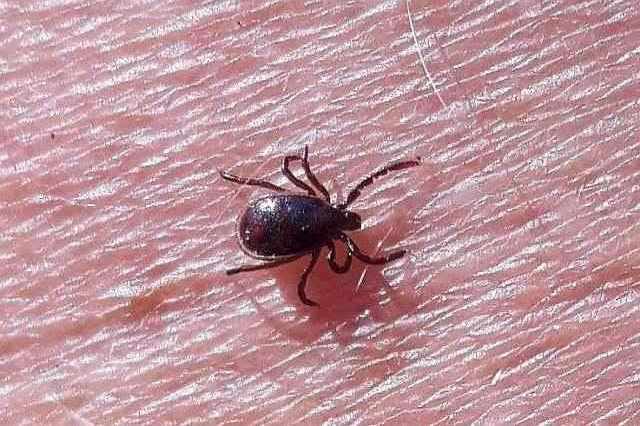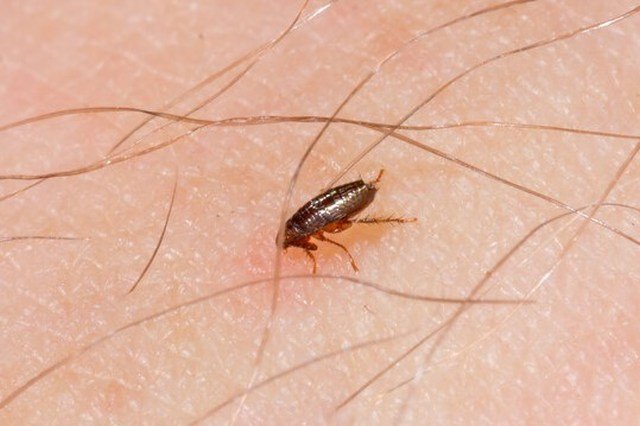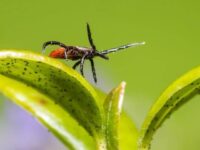Fleas and Ticks are the nightmares of every pet owner, little blood-sucking pests that bother our four-legged friends. They are a constant problem and you need to take care so your pet does not get infested with fleas or ticks. Unfortunately, it can happen everywhere as they are so common. Fleas, when in contact with other pets or in a flea-infested room. Ticks, when roaming outside around scrubs, meadows, or in the woods. But how do you recognize the parasites, how do fleas and ticks differ and how are fleas and ticks removed?
Both fleas and ticks are parasites that need to feed on the blood of their host to survive. They are common throughout the year, more common though during the warm month of the year. They infest pets or humans directly or can spread to humans via pets.
Whether it is fleas or ticks, both can cause several health problems as they are carriers of often dangerous diseases. Tick and flea protection is an important issue not only for pet owners

Flea vs Tick – What the difference?
To get a clear picture of the differences between flea vs tick let’s compare what we know about them:
Parasite type – Fleas are a type of insect that lives off the blood of warm-blooded animals. They have no wings but strong hind legs that allow jumping far. Ticks are not insects but a type of arachnoid they look spider-like with the presence of eight legs, they move slow and need close contact to transfer to their host.
Hosts- Fleas usually prefer to live on dogs, cats, and humans. On the other hand, ticks live on birds, mammals, and in rare cases even on amphibians and reptiles. Unlike fleas, ticks attach themselves to a host only when they require a feed. They fall off as soon as they finish feeding.
Lifespan Flea vs Tick- Fleas have a relatively short life compared to ticks. It varies among the species but none live longer than about a year. Ticks are much tougher can withstand extreme temperatures and may live up to 10 years.
Feed- When it comes to feeding, only adult fleas feed on the host. Ticks, on the contrary, feed on different hosts during the different stages of their life.
Laying eggs- Fleas begin laying eggs as soon as they get attached to a host. They can lay up to a maximum of 40 eggs per day. Ticks can lay thousands of eggs at a single time in the last stage of their life and die after that.
Climate- Fleas prefer to permanently live on a warm-blooded host. A lower temperature reduces their activity. Ticks are tougher and can survive long in lower temperatures and are still able to wait for a host to attach on.
Bites- Flea bites can be identified as little raised bumped up the part which is often itchy. They often occur as a series or cluster with a center part that has a minute hole. The flea bites to suck blood until full moves on to lay eggs and will soon bite again. Ticks will bite and stay attached until full and then fall off the host. The bite can be identified as a tiny wound that may be itchy and get infected.
Diseases- Both fleas or ticks can transmit viral, bacterial, and rickettsial diseases to humans and animals. The ticks cause several diseases such as Colorado tick fever, Rocky Mountain spotted fever, African tick bite fever, tularemia.
Treatment- The treatment for acute flea or tick infestation includes the use of shampoos that kill pests quickly. The fleas nits (eggs) need to be combed out. A flea collar, spot-on preparations or oral medications disturb the life cycle or prevent infestations.

Do not ignore Tick and Flea Protection!
If you ignore protection against ticks and fleas, you endanger yourself and your pet. Depending on where you live there are a number of diseases that can be transmitted by fleas and ticks. And no matter how hard you try to protect your pet from fleas or ticks there is no perfect way to prevent parasites.
But you can reduce the risk by being observant and using necessary hygiene measures to prevent and remove fleas and ticks. Appropriate medications and using bug repellent can reduce the problem.
Sources and more to read about ectoparasites:
CDC About Parasites: www.cdc.gov/parasites/about.html
ESCCAP Guidelines about Parasite control www.esccap.org/guidelines/



